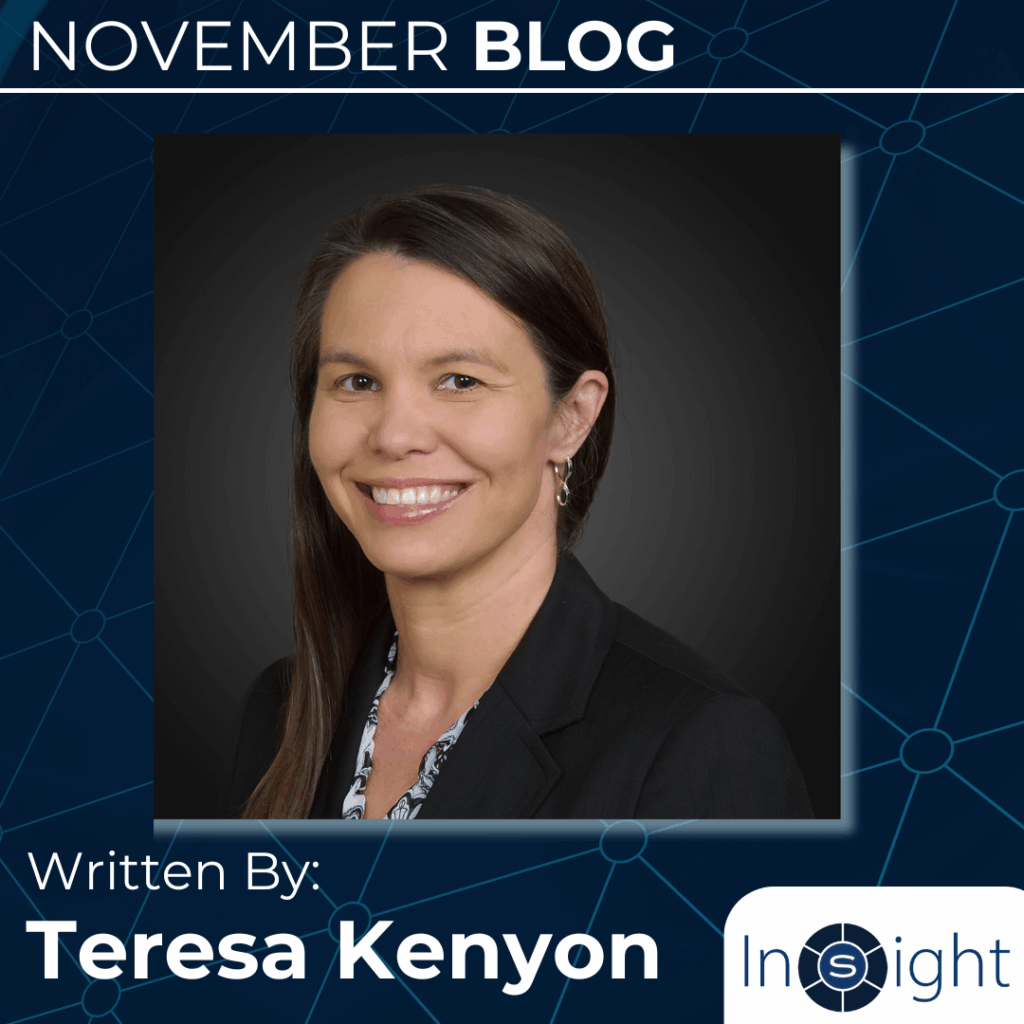MEDICARE COMPLIANCE
Welcome to Synergy’s blog page dedicated to the topic of Medicare compliance. Our team of Medicare experts share their InSights and knowledge on the latest developments and best practices for law firms to stay compliant with the MSP. Stay up-to-date with the latest trends and strategies to ensure that you have the information you need to navigate the complex world of Medicare compliance. Our blogs provide practical tips and advice for ensuring that your clients receive the medical care they need while complying with Medicare’s requirements. Let our experts guide you through the intricacies of Medicare compliance and help you stay on top of the latest developments in this rapidly-evolving field.
If your client is on Medicare, Medicare compliance must be part of your resolution strategy. Failing to address the Medicare Secondary Payer Act (MSP) can trigger denials of future care, government recovery actions, or worse, personal liability for your law firm.
Here’s what you need to know, and what you should be doing about it.
Why the MSP Matters
Medicare is a secondary payer. That means it only pays for injury-related care if no other insurer is responsible. When a personal injury case settles and Medicare has already paid for related treatment, the government wants its money back. These are called conditional payments.
However, that isn’t the end of the matter. If a settlement includes compensation for future medical care, the Centers for Medicare & Medicaid Services (CMS) expects the injured party to use that money before billing Medicare. Failing to consider Medicare’s future interests can lead to Medicare denying coverage for future care.
Two Key Compliance Risks
- Conditional Payment Recovery
Medicare can recover what it paid before settlement. Errors in resolution can cause serious compliance risks for personal injury firms.
- Future Medicals and Set-Asides
Settlements that include future medicals may require considering Medicare’s future interests. One way to consider Medicare’s interests is with a Medicare Set-Aside (MSA)—a portion of funds set aside to pay for future Medicare-covered services. While not legally required in liability cases, CMS policy strongly encourages this. The risk? Medicare might deny care and your client could claim malpractice against your firm for failing to advise them.
How the Government Enforces the MSP
Trial lawyers are being held accountable related to mistakes in terms of MSP compliance. Recent Department of Justice actions include:
- A $250,000 settlement with a law firm that failed to repay conditional payments.
- A firm required to start a compliance program and assign a specific employee to handle MSP obligations.
- Cases where the DOJ pursued lawyers even when co-counsel failed to repay Medicare.
Making mistakes related to these obligations isn’t just risky for your client—it’s risky for your practice.
Best Practices for Trial Lawyers
- Screen Every Client
Identify Medicare beneficiaries or those reasonably expected to become eligible within 30 months. This includes clients on SSDI.
- Follow the CAD Protocol
- Consult with experts to address conditional payments and possible futures.
- Advise your client about Medicare’s rights and what might happen if they don’t protect them.
- Document the file, especially if the client declines to set aside funds.
- Control the MIR Narrative
Collaborate with defense counsel to ensure accurate ICD codes and dates of accident are properly reported. Incorrect data can trigger denial of care or new demands from Medicare.
- Reject Bad Release Language
Many defense-prepared releases include overreaching or outright inaccurate Medicare language. Avoid agreeing to anything not supported by law.
- Don’t Disburse Too Early
Always wait for Medicare’s final demand, not just a conditional payment letter, before disbursing funds.
Educate Clients and Protect Your Firm
Make sure your client understand Medicare’s rights to reimbursement. In addition, your client needs to understand the risk of doing nothing when it comes to futures. Document your advice.
Final Thought
Medicare compliance is not optional. Trial lawyers must take proactive steps to protect both their clients and their firms. You don’t need to be a compliance expert, but you should work with one.
Want to avoid costly mistakes and closes cases compliantly? Synergy is the nation’s leading MSP compliance partner for law firms. We can help you get it right, every time.
Written by: By Jason D. Lazarus, J.D., LL.M., MSCC | Founder & Chairman of Synergy | Founder of Special Needs Law Firm | Author of Amazon Best Sellers – Art of Settlement & Litigation to Life | Host of Trial Lawyer View by Synergy Podcast | Peak Practice by Synergy Curator
A significant portion of my legal practice has focused on workers’ compensation insurance defense. Although this area is rich with Medicare Secondary Payer (MSP) compliance guidance from the Centers for Medicare & Medicaid Services (CMS), it has often been misunderstood by practicing attorneys. Part of the problem may stem from the “unsexy” nature of Medicare, after all, who doesn’t associate Medicare with visions of older people?
When I realized that MSP compliance issues couldn’t be ignored, I dove into studying the MSP statute and became a self-proclaimed MSP compliance nerd. (Yes, Virginia, there are quite a few of us.)
My admittedly irrational interest in MSP compliance led me into the world of MSP vendors, where beginning in 2010 I consulted on both liability and workers’ compensation cases. My shift to the plaintiff side began in 2020 when I joined Synergy as their Director of MSP Compliance. My work involves advising attorneys and their injured Medicare beneficiary clients about how the MSP Act may impact their personal injury settlements.
Over the years, as I’ve consulted with attorneys and their Medicare beneficiary clients, my definition of an “old” person has changed profoundly. Although many beneficiaries are significantly injured, they are resilient and often have inspiring attitudes. So when I filled out my online Medicare application this past November, I found myself genuinely looking forward to receiving my Medicare Beneficiary Identifier number in the mail. Stay tuned for tips as I begin mastering the art of being a Medicare beneficiary.
Written by: Rasa Fumagalli JD, MSCC, CMSP-F | Director of MSP Compliance at Synergy.
If your firm is settling personal injury cases, Medicare conditional payments and Medicare Advantage Plan (MAO) liens aren’t just red tape, they’re legal minefields. Overlooking them could cost your client and your firm big.
Here’s what you need to know and why it matters.
Medicare Conditional Payments: Serious Risk, Strict Rules
Under the Medicare Secondary Payer Act (MSPA), Medicare has a statutory right to recover payments it made for injury-related care when another party (like a liability insurer) is responsible. These are called conditional payments.
CMS doesn’t just have a lien, it has subrogation rights, a private cause of action, and the power to seek double damages. That means if you disburse funds before resolving Medicare’s claim, your firm could be sued.
The process is bureaucratic and slow. You must:
- Contact the Benefits Coordination and Recovery Contractor (BCRC) early
- Review and dispute the Conditional Payment Letter (CPL)
- Report the final settlement
- Wait for and pay the Final Demand within 60 days
Failing to do this properly can lead to interest, Treasury enforcement, or worse, a malpractice claim.
Medicare Advantage Plans: Same Rights, Different Rules
MAOs (Part C plans) are private companies paid by Medicare to provide benefits. Thanks to the Third Circuit’s ruling in In re Avandia, MAOs have the same recovery rights as traditional Medicare under the MSPA.
The kicker: MAOs often work through aggressive recovery contractors like Rawlings/Machinify or Optum/Katch. These entities move fast, push hard, and don’t care about fairness, they care about getting paid.
Trial lawyers need to:
- Identify whether a client is covered by an MAO
- Demand plan documents to confirm repayment rights
MAO liens are often inflated or misapplied. Without deep knowledge of their limits and defenses, you’re fighting blind.
Why It Matters
Ignoring or mishandling Medicare or MAO liens:
- Delays disbursement
- Exposes your firm to liability
- Reduces your client’s net recovery
- Damages your reputation
It’s not just about compliance. It’s about outcomes.
Best Practices
Here’s how experienced firms protect themselves:
- Start early. Identify Medicare and MAO liens pre-settlement.
- Audit everything. Challenge unrelated charges. Don’t rely on preliminary numbers.
- Pay smart. Consider compromise or waiver post-payment to reduce what’s owed.
- Know your defenses. Made whole, procurement cost offsets, and the requirement to follow Medicare protocols can all be leveraged.
- Outsource strategically. A lien resolution partner with Medicare expertise is not a luxury—it’s risk mitigation.
Why Partner with Experts Like Synergy
At Synergy, our lien resolution team understands the nuances of Medicare and MAO claims. We’ve handled thousands of cases and negotiated countless reductions. We know the playbook of recovery contractors, and we use that to protect your client’s recovery.
Let your team focus on trials. Let us handle the liens.
Written by: Teresa Kenyon Esq., Vice President of Lien Resolution Strategy at Synergy
In the world of personal injury litigation, where settlements can make or break a client’s future well-being, coordination of benefits is no longer a side issue, it’s central to protecting your client’s recovery. For veterans, military retirees, and their families, that complexity multiplies when Medicare, TRICARE, or VA benefits overlap. Once you add a client’s injury recovery to the mix, personal injury firms must be careful to avoid compliance pitfalls, reimbursement demands, and potential denial of care.
So how do these benefit systems interact and why does it matter for your client?
The Basics:
TRICARE, TRICARE for Life, and benefits under the Department of Veterans Affairs (VA) provide essential health care coverage to military service members, veterans, and their families, but they serve different populations and have distinct features. TRICARE primarily offers health care to active-duty service members and their dependents under the age of 65. It provides a range of services including medical, dental, and mental health care through various plans like TRICARE Prime and TRICARE Select. In contrast, TRICARE for Life is a premium-free health care program specifically for Medicare-eligible military retirees and their dependents, which acts as a secondary payer to Medicare and enhances benefits by covering additional services not fully addressed by Medicare. On the other hand, benefits under the VA focus on providing comprehensive health care to veterans with a variety of services, including specialized care for service-connected injuries and conditions. While TRICARE emphasizes readiness and access for currently active military personnel, TRICARE for Life reinforces support for older veterans with Medicare coverage, and VA benefits cater primarily to those who have discharged from military service. Each program is tailored to meet the unique needs of its respective beneficiaries, highlighting the complexities of health care available to those who have served in the U.S. Armed Forces.
Who Pays First?
Understanding the payer hierarchy is critical. Medicare, Tricare, and the VA all have distinct rules about who pays when:
- TRICARE acts as a secondary payer to Medicare. If your client has both, Medicare pays first, and TRICARE picks up what’s left, as long as the service is covered under TRICARE.
- VA benefits, however, are not health insurance. The VA provides care for service-connected conditions, often outside the coordination rules that apply to Medicare or TRICARE.
- Medicare is always the primary payer when used with TRICARE, unless the medical condition is service-connected, in which case the VA may take priority.
When a PI settlement enters the equation, things get trickier. Now Medicare’s rights under the Medicare Secondary Payer Act (MSP) come into play, potentially triggering obligations, even if other programs are involved.
Why This Matters in the Personal Injury Context
When a veteran or military retiree is injured and receives a settlement, failing to coordinate correctly between these programs can lead to:
- Duplicate payment recovery demands from Medicare, VA, or TRICARE
- Denial of future Medicare-covered care
- Compromised client recoveries
- Malpractice exposure to the trial attorney
Even more critical, Medicare may conditionally pay for treatment related to the injury, expecting reimbursement once the settlement is finalized. But if TRICARE also pays or the VA is involved, lawyers must untangle the web of who owes what and when.
Practical Example
Let’s say your client is a 68-year-old military retiree with TRICARE and Medicare. They were injured in a motor vehicle accident and treated at a civilian hospital. Medicare pays first; TRICARE covers the balance. The VA is uninvolved unless the injury is tied to military service.
When a settlement is reached, Medicare will seek reimbursement for conditional payments made for injury-related care. But here’s the catch: if TRICARE also paid, there may be a duplicate demand, or worse, a confusing mismatch in what each program believes is owed.
Without a coordinated lien resolution process, your client could be stuck repaying more than required or face future coverage denials.
What About VA?
If care was rendered at a VA facility for a service-connected condition, VA is usually primary, and Medicare/TRICARE may not be involved. But if the injury is not service-connected, Medicare steps in, and the VA may bill the client directly.
The VA also asserts its own lien rights under 38 U.S.C. § 1729, meaning it may demand reimbursement from the PI settlement. These claims are governed by different rules than Medicare and must be negotiated separately—something many lien resolution vendors miss.
Why This is Important to Trial Lawyers
Ignoring or making mistakes regarding these coordination rules can:
- Jeopardize the client’s future care
- Delay disbursement of settlement funds
- Invite government recovery actions
- Create financial exposure for your firm
Worse, failure to account for the VA, TRICARE, or Medicare’s role in paying for care can result in missed reimbursement demands or post-settlement denial of care, problems that could have been avoided with proper coordination.
How We Help
At Synergy, we’ve seen too many cases where failure to understand TRICARE, VA & Medicare benefit coordination has been costly and exposed firms to unnecessary risk. Our team handles the nuanced resolution of VA liens, TRICARE liens, and conditional Medicare payments to protect everyone involved. We believe trial lawyers and their teams should be focused on getting justice, not deciphering overlapping federal benefits. That’s where our expertise comes in.
Final Thought
If your client has any combination of Medicare, TRICARE, or VA benefits, don’t assume that standard Medicare coordination applies. Each program has its own rules, and they don’t always play nicely together. Engage an expert early. Know who paid what. And protect your client’s recovery by engaging experts before funds are disbursed.
Contact Synergy today. Our team of MSP compliance experts can resolve even the most complicated scenarios, so you don’t have to worry.
Written by: Rasa Fumagalli JD, MSCC, CMSP-F | Director of MSP Compliance at Synergy.
For personal injury firms, lien resolution is one of the most time-consuming and risk-heavy aspects of personal injury practice. Every lien has the potential to cut into your client’s net recovery and expose your firm to liability if mistakes are made. The challenge? Not every lien is created equal. Some demand specialized expertise, while others are more efficiently handled in-house.
Knowing which liens to outsource, and which to resolve internally, is essential to protecting both your clients and your practice.
Liens That Should Be Outsourced
Certain liens are simply too complex, too time-intensive, or too risky for most law firms to manage effectively on their own. These include:
- Medicare Conditional Payments – Governed by strict timelines and regulatory processes, with penalties for missteps.
- Medicare Advantage (Part C) Liens – Often enforced by aggressive recovery contractors with deep resources who seek double damages if you fail to repay.
- Medicaid Liens – Highly state-specific, requiring expertise in varying third-party liability statutes.
- ERISA Plan Liens – Backed by federal preemption and difficult plan language, often favoring reimbursement.
- FEHBA & Military Plan Liens – Complex federal programs with unique recovery rights.
- Private Health Insurance & Hospital/Provider Liens – Frequently involve aggressive billing practices and balance billing disputes.
These liens are best handled by professionals who negotiate them daily. Outsourcing here means fewer errors, better results, and more time for your firm to focus on trial work.
Liens Best Kept In-House
Not every lien type justifies outsourcing. Some are more straightforward or are better managed locally:
- Small Liens ($2,000 or less) – Costs of outsourcing may outweigh potential savings.
- Local Provider Liens – Especially when your firm has established relationships with the provider.
- Workers’ Compensation Liens – Governed by state-specific statutes, often better handled locally.
- Medicaid Estate Recovery Liens – State-driven with unique procedural requirements.
- Child Support Liens – Typically statutory and straightforward in enforcement.
- Pre-Settlement Funding Liens – Governed by contract law, often requiring simple verification.
These liens are usually not complex enough to require outside expertise and can be resolved more cost-effectively by your team.
Why This Decision Matters
The decision to outsource isn’t just about convenience, it’s about strategy. Making a mistake with a Medicare or ERISA lien can expose a firm to government enforcement or malpractice claims. Overpaying a hospital lien can reduce your client’s recovery and erode trust. On the other hand, outsourcing small, straightforward liens can create inefficiencies and unnecessary costs.
Striking the right balance allows your firm to:
- Maximize client recovery by ensuring complex liens are aggressively negotiated.
- Reduce liability by leaving high-risk liens to experts.
- Improve efficiency by handling routine liens internally.
Final Thought
Not all liens are created equal and not all should be outsourced. The key is knowing where your firm’s expertise ends and where outside specialists can add value. By strategically deciding which liens to keep in-house and which to outsource, trial lawyers can protect client recoveries, reduce liability, and run a more efficient practice.
At Synergy, we know which battles are worth fighting and how to win them. For the liens that carry the most risk and complexity, our team brings unmatched expertise to the table.
Written by: By Jason D. Lazarus, J.D., LL.M., MSCC | Founder & Chairman of Synergy | Founder of Special Needs Law Firm | Author of Amazon Best Sellers – Art of Settlement & Litigation to Life | Host of Trial Lawyer View by Synergy Podcast | Peak Practice by Synergy Curator
Personal injury law firms live in the courtroom. Their core focus is proving causation, liability, and damages not negotiating with Medicare, ERISA plans, or hospital billing departments. Yet, as every law firm knows, cases don’t truly end at settlement. They end when liens are resolved, and final disbursement is made.
And here lies the dilemma: lien resolution is time-consuming, highly technical, and fraught with risk. Increasingly, law firms turn to outsourcing as a solution. But the question many lawyers ask is, is it ethical to outsource lien resolution?
The answer is yes, when done correctly.
Ethics Matter in Outsourcing
Outsourcing lien resolution isn’t just a business decision. It’s a professional responsibility decision. Mishandling liens can expose clients to ongoing claims, delay disbursement, or even trigger penalties such as Medicare’s double damages provision. Worse, it can expose the attorney to malpractice risk.
The ABA and state bar associations recognize that outsourcing is both permissible and often beneficial, so long as lawyers follow specific ethical safeguards.
ABA Guidance on Outsourcing
ABA Formal Ethics Opinion 08-451 provides clear direction: lawyers may outsource legal and non-legal support services, but they retain ultimate responsibility. That means:
- Supervision: Attorneys must oversee outsourced lien resolution work and ensure it meets professional standards.
- Confidentiality: Client information must remain protected, just as if it were handled in-house.
- Reasonableness of Fees: Costs must be transparent, reasonable, and disclosed to the client.
In short, outsourcing requires active oversight to ensure compliance with ethical obligations.
State-Specific Ethical Rules
Many states echo the ABA’s position, often adding their own guidance:
- New York allows outsourcing as long as fees are disclosed and result in a net client benefit.
- Ohio and Utah emphasize obtaining informed client consent and ensuring costs are both reasonable and transparent.
This growing consensus makes it clear: outsourcing is not only permissible but also practical, provided ethical safeguards are followed.
Ethical Outsourcing Benefits Clients
At its core, outsourcing lien resolution ethically is about client protection. Done properly, it:
- Maximizes Client Recovery by ensuring liens are challenged, audited, and negotiated effectively.
- Reduces Risk by avoiding errors that could trigger legal or financial exposure for both client and attorney.
- Enhances Trust by giving clients confidence that every dollar possible is preserved in their recovery.
Final Thought
Trial lawyers shouldn’t hesitate to bring in lien resolution experts, so long as they do so ethically. By supervising outsourced work, securing client consent, and partnering with trusted providers, firms can meet their professional obligations while achieving better results for their clients.
At Synergy, ethical lien resolution is at the heart of what we do. We partner with trial lawyers nationwide to reduce risk, improve client outcomes, and protect the integrity of every settlement we are involved in.
Written by: By Jason D. Lazarus, J.D., LL.M., MSCC | Founder & Chairman of Synergy | Founder of Special Needs Law Firm | Author of Amazon Best Sellers – Art of Settlement & Litigation to Life | Host of Trial Lawyer View by Synergy Podcast | Peak Practice by Synergy Curator
BLOGS
READY TO SCHEDULE A CONSULTATION?
The Synergy team will work diligently to ensure your case gets the attention it deserves. Contact one of our legal experts and get a professional review of your case today.




